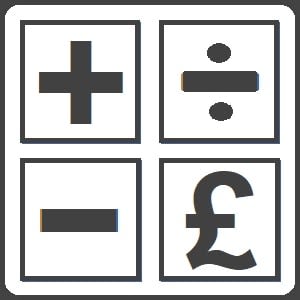What's New in the 2024–25 Self Assessment Tax Return?

Key Changes of 2025 SA100 Form You Should Know
HMRC has made several updates to the Self Assessment tax return for the 2024–2025 tax year. While many of these changes are aimed at accountants and agents, some are directly relevant to individual taxpayers. Here’s a breakdown of what really matters in plain English.
Capital Gains Tax: Crypto Now Has Its Own Section
If you’ve sold or disposed of assets in the 2024–25 tax year, you should be aware that Capital Gains Tax (CGT) calculations may differ depending on when the disposal occurred. In particular, if the sale happened on or after 30 October 2024, the tax calculation might be affected by the updated CGT rules. HMRC has provided a new tool to help with any necessary adjustments.
Another important update is that if you’ve sold or traded cryptoassets—such as Bitcoin or Ethereum—there’s now a separate section on the tax return to report these. Previously, crypto disposals were included in a more general category, but with the growing relevance of digital assets, HMRC has given them their own space.
If you’ve claimed Business Asset Disposal Relief (BADR), you’ll also notice new areas to clearly record these gains under the 'Other property and assets' section.
Employment Income: New Questions for Loan Borrowers and Pension Tax Relief
If you're employed and have student or postgraduate loans, there's now a dedicated place to declare any benefits in kind—such as a company car or medical insurance—that have been taxed through your salary. This helps HMRC calculate your income more accurately and make sure the right amount is being used to assess your loan repayments.
There’s also a new box for employees who received a “top-up” from HMRC due to how their pension scheme applies tax relief. This change ensures individuals aren’t penalised when their pension provider doesn’t automatically handle relief at source.
Self-Employed and Partnerships: Basis Period Reform and Accounting Method Changes
The basis period reform that began in the 2023–24 tax year is now fully in effect. Self-employed individuals and partners in partnerships are now required to report income based on the tax year (6 April to 5 April), rather than their own business year-end. This is the first full year under the new rules. If you chose to spread any transition profit over five years, you’ll still need to include that information in this year’s return.
In addition, cash basis accounting has now become the default method for most self-employed businesses. This simpler method means you report income and expenses when the money is actually received or paid. If your business is using the traditional accruals method, you must indicate this on your tax return.
We take care of our client's matters as if they are our own matters, most important ones. If you have followed our UK Tax Blogger, you should have noticed we prepared the transition for all our clients. In Elaga Accountancy we are always ahead of changes and coming changes.We have much details how to prepare the transition accounts in another post. Please go there and find details what to do if you haven't done it. Talk to our representative for more details. We can always help.
National Insurance: Class 2 Contributions Simplified
There’s an important update in how Class 2 National Insurance Contributions (NICs) apply to self-employed individuals for the 2024–25 tax year. Class 2 NICs are fixed weekly payments made through the Self Assessment system, based on your level of profit. If your taxable profits are below £6,725, or if you’ve made a loss, you don’t have to pay Class 2 NICs. This change is part of HMRC’s effort to simplify National Insurance rules for self-employed taxpayers and reduce unnecessary charges for those with smaller incomes.
Final Thoughts
The changes for 2024–25 continue HMRC’s move towards modernisation and simplification, especially for self-employed taxpayers and those with digital or investment income. If you're filing your return yourself, it's worth familiarising yourself with these updates to avoid mistakes—and if you use an accountant, it's helpful to know what’s changed so you can ask the right questions. If you look for a capable and knowleddgeable accountant for your UK tax matters, talk to Elaga Accountancy and we will arrange your tax matters to the best position. We grow by growing our clients.
#UKTax #SelfAssessment2025 #SelfEmployedTax #CapitalGainsTax #CryptoTaxUK #StudentLoansUK #BasisPeriodReform #HMRCUpdates #TaxTipsUK #NICs #TaxReturn2025
Contact Us
Send a Message
Get in touch to discuss with us how we can best assist you.
